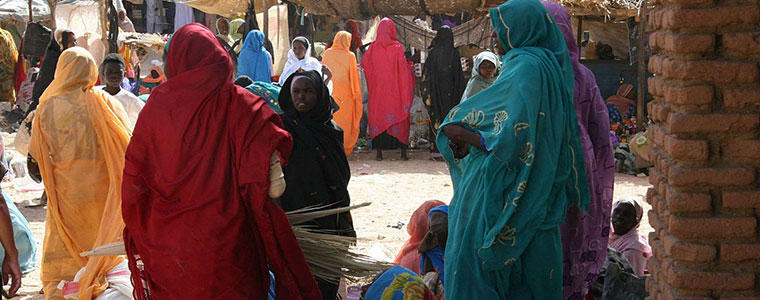In September 2012, Sudan and South Sudan signed nine cooperation agreements, including a framework agreement and specific agreements on oil, border issues, citizenship, and the division of debts and assets. These represented many of the unresolved issues stemming from the secession of South Sudan in July 2011.

Although gender concerns did not figure explicitly in the Sudan and South Sudan's September 2012 framework agreements, implementation offered both countries an important opportunity to develop an inclusive process whereby women actively participate and voice their own priorities and concerns.
Following from these agreements, USIP produced an analysis, "The 2012 Sudan-South Sudan Agreements Through A Gender Lens," that examined gender aspects of each of the nine agreements and made recommendations for gender-sensitive implementation of the agreements. Overall, the analysis recommends:
- Include women in all the implementation bodies. Without women’s formal participation in more than token numbers, it is unlikely that the gender-specific impacts of the agreement will be adequately addressed. Women should be included from the very first stages of the process, when important decisions are likely to be made, both as government representatives in policymaking commissions, as well as technical experts on the implementation committees. Consideration should be given to mandating a minimum quota (consistent with the constitution of South Sudan, but not that of Sudan); research on mandated quotas generally finds that a critical mass of women is necessary if gender concerns are to be taken into account.
- Women’s organizations must be representative and address the diversity of women’s needs and interests. Care must be taken to include women who speak for and feel accountable to their constituents, rather than women from government-sponsored NGOs. Moreover, it will be important to work with a range of organizations that reflect the diverse and sometimes competing needs and challenges experienced by women of different ages, family situations, place of residence (urban/rural), and ethnic and tribal affiliations.
- Donors can leverage their roles to promote the meaningful inclusion of women. Agreements that allow the two states to jointly request third-party financial and/or technical assistance provide entry points for donors, who can provide resources and capacity-building contingent on inclusion of women in the policymaking commissions or technical committees. Where participation in the committees requires travel, a portion of financial support should be earmarked for travelling, lodging, childcare, capacity building and physical protection for women.
- Create an official mechanism to link women’s civil society organizations with implementation bodies. An official mechanism should be created for civil society, including women’s groups from both states, to participate in the implementation process, through such roles as monitoring compliance and giving voice to the interests and concerns of local men and women to the decision-making commissions and implementation committees.
- This official mechanism should be used to educate women about the agreements. Similarly, this mechanism could also serve as a channel of communication to the public, with women’s organizations involved to ensure that dissemination reaches women, who are less likely than men to be literate, well informed on current issues, and, in South Sudan, conversant in Arabic. Donors can help by providing financial support and-capacity building to these organizations, as well as to local radio stations.
- Men must be involved in the education process. Men must also be a part of the education process in order to expand their understanding of why women’s active engagement will support successful peacebuilding.




